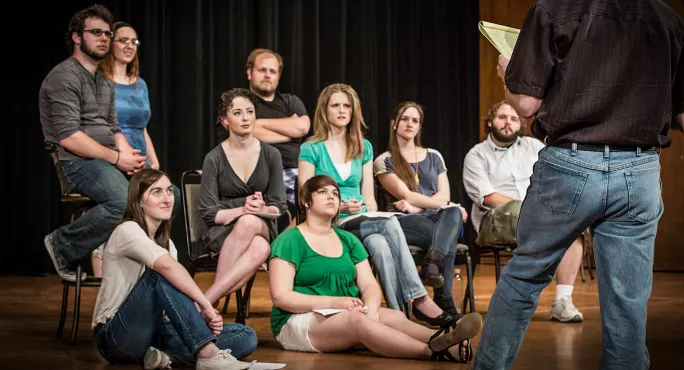On 15 May, the SQA announced to the Higher drama course. This followed a March survey involving teachers and 2023-24 candidates, and an October consultation with the for drama.
Responses showed clear agreement across the sector: change was needed. On the surface, this looks like a positive example of the SQA listening and responding to teacher and learner feedback.
The changes fall into two key areas:
1. Written paper adjustments
One section of the exam has been removed, the paper time reduced and the wording of questions and marking instructions revised. Many teachers had raised concerns about how much candidates needed to write in the time available and the lack of clarity in how answers were marked. These updates have been largely welcomed.
2. Introduction of a set-text list
From August 2025, candidates will study one text from a prescribed list. Candidates must memorise key quotations and analyse the playŌĆÖs characters, themes and structure.
Concerns over timing
The drama teaching community has long called for reform to the Higher paper, and many are pleased with these changes in principle. I was in favour of most of the proposals myself.
So, why all the fuss? Are drama teachers, as the stereotype goes, turning this into a three-act tragedy?
In my opinion, the key issue isnŌĆÖt the changes - itŌĆÖs the timing:
- 15 May: changes announced.
- 19 May: set-text list published.
- Early June (typically around 3 June): new cohorts return.
This gave schools just 10 working days - excluding late May bank holidays and Inset days - to respond. If a departmentŌĆÖs chosen text is no longer permitted, they will have had to select a new one, source class copies (budget permitting) and begin writing new learning and teaching materials, all in under two weeks.
Some schools may be less affected if they already use a listed text, but all will still need to revise materials to reflect the removal of a paper section. For many drama departments, these tasks fall on a single teacher, often with limited or no local authority support.
And this is no quiet time of year. June is show season; rehearsals, performances and backstage demands absorb time and energy. The notion of the ŌĆ£wind downŌĆØ term simply does not apply in drama departments.
ItŌĆÖs true that schools could technically start teaching the new text in August. ItŌĆÖs also fair to say that a recommended text list has existed for years - had departments stuck to it, this transition might have been easier.
However, the ability to choose texts based on the needs and interests of a specific cohort has always been a strength of the course. In my own school, none of the three texts we use are on the new list.
The SQA has often been criticised for slow or unclear communication. Ironically, these changes were the result of consultation. There likely would have been criticism if they had delayed the change until next year. But even with good intentions, rollout matters. In its most recent survey, the SQA asked teachers:
- What does Qualifications Scotland need to do differently after it replaces the SQA this autumn?
- How can it be more flexible in meeting your needs?
- How can it build a stronger relationship with you?
A helpful starting point might be this: donŌĆÖt announce major course changes with a two-week turnaround.
Potential and pitfalls of education reform
These developments also sit within a broader national context. The 2023 Hayward review called for a more coherent, learner-centred approach to assessment and highlighted the need to reduce workload and overreliance on high-stakes exams.
In response, the Scottish government aims to improve flexibility, trust and communication as the SQA is replaced by Qualifications Scotland.
The Higher drama changes reflect both the potential and the pitfalls of reform. The intentions were good, the consultation strong, but the rushed implementation risks alienating the very teachers the reforms are meant to support.
For reform to be truly effective, it must align ambition with the lived realities of classrooms. The lesson is simple: what is changed matters - but so does when and how itŌĆÖs done.
Kirsty Ferns is a drama teacher in Scotland
For the latest in Scottish education delivered directly to your inbox, sign up for TesŌĆÖ The Week in Scotland newsletter





